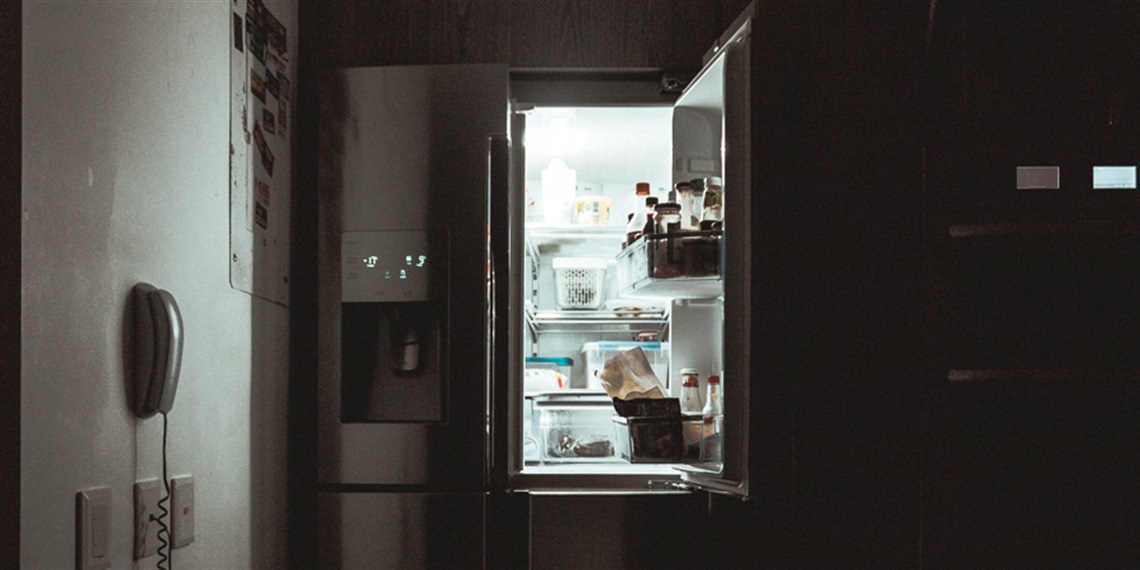Muscle-building bedtime snacks
Published on 18 October 2021

We all know that what you eat is important. But what about when you eat? Especially if you’re someone who likes to keep active?
Fact: Protein is the building block of your muscles. This is why so many who exercise with the goal of building muscle have a protein-rich diet.
Protein supplies amino acids, which builds our muscles. Studies have shown that if you consume an ample amount of protein right before bed, you’ll take full advantage of this spike in growth hormone and maximise muscle gains.
We chat to dietitian and personal trainer, Byron Manning, about how you can put your bedtime snack to good use.
But before we jump in, let’s get back to basics to understand why protein is such a muscle-building generator.
“To get muscle growth happening you need to have some sort of stimulus and the main stimulus people think of is coming to the gym, lifting heavy objects to tear the muscle fibres. Another stimulus is to eat protein,” says Manning.
When it comes to building muscle, protein intake and strength training are your dynamic duo, explains Manning.
“How they work is with muscle protein synthesis and muscle protein breakdown. Those two things are in a constant state of flux and your muscles throughout the day are constantly breaking down and built back up, so it’s a bit of a wave.”
Muscle protein synthesis (MPS) is a naturally occurring process in which protein is produced to repair muscle damage caused by intense exercise. It is an opposing force to muscle protein breakdown (MPB) in which protein is lost as a result of exercise.
The ratio of MPS to MPB determines whether muscle tissues are built or lost. If MPS outpaces MPB, muscle growth is achieved. If MPB outpaces MPS, the opposite occurs.
Timing is everything
Now back to our original question. Is there an optimal time to consume protein?
While hitting the overall daily intake is most important, research does suggest that protein timing can make a difference. Several studies have shown that protein consumed before bed can indeed foster muscle growth.
If you’re a fan of resistance training, the idea of a pre-bed protein snack has merit. A 2015 study published in the Journal of Nutrition found that healthy young men who completed a 12-week resistance training program and consumed protein before bed saw greater improvements in muscle strength, muscle size, and muscle fibre size when consuming pre-sleep protein.
To put this theory to good use, Manning has some tips. He suggests having your snack as close to hitting the hay as possible - but there are a couple of considerations.
“There’s a certain threshold, if you do a gym session that will provide a stimulus up to a certain amount and it’s the same with protein, up to about 20g to 30g will stimulate muscle protein synthesis maximally – above that you’re not going to get much more of an increase,” Manning explains.
He also points out that it takes around three to four hours for that peak to settle.
“So having our last meal with protein in it as close to possible to bedtime is basically a way of manipulating those spikes in muscle growth,” says Manning.
This is essentially based on the rationale of going to bed and fasting for around eight hours. During this period “you’re not going to have any stimulus coming into you so you want to push that last stimulus as far forward as possible”.
Suppertime snacks
If you’re wanting to whip up a supper snack, Manning’s top recommendation is to avoid supplements.
“As a dietitian I will always recommend food first before a supplement such as a protein shake. A great option is dairy, such as a high-quality, high-protein yoghurt.”
Before you head to the fridge, however, it’s worth noting that this muscle-building tactic might not be for everyone, and that’s absolutely okay, Manning adds.
Before you start slamming down protein shakes or chicken while kicking off your slippers ready to slide into bed, Manning says to be mindful of how this might impact your sleep.
“Some people might find that having something too close to bed makes them feel uncomfortable and their sleep becomes broken, in that case it’s not worth it.”
For this reason, a bit of trial and error to see how your body responds might be the way to go.
And considering sleep is super vital to our health and muscle recovery, definitely don’t sacrifice your snooze time for your snack time because you really won’t be doing yourself any muscle-building favours.